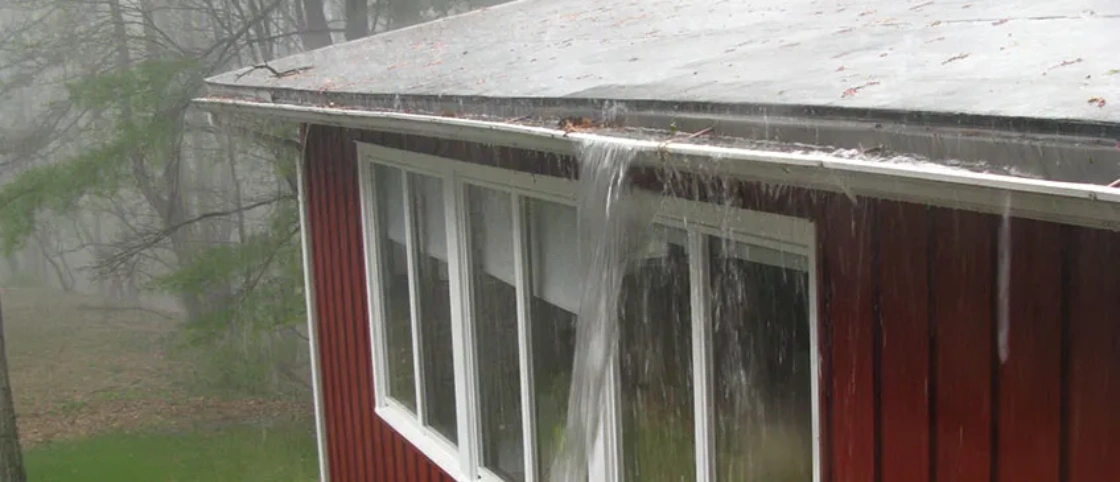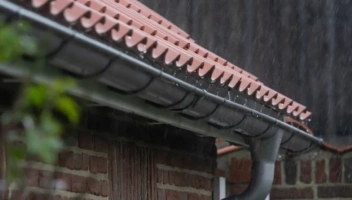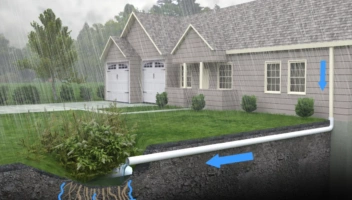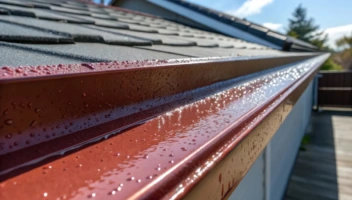What Happens If You Don’t Clean Your Gutters?

You know you should clean out your gutters, but you just don’t have the time. Besides, the idea of climbing a ladder with a gutter scoop or trowel just doesn’t sound safe, and you can’t imagine the project is so important that it’s worth risking an injury.
At LeafFilter, we totally agree. You don’t have time to clean out your gutters, and it’s not worth risking your safety. That’s why we guarantee that if you choose our system, you won’t have to worry about cleaning out your gutters again.
Have you cleaned out your gutters yet? We didn't think so! Schedule your free estimate today and let our team do the rest by visiting https://t.co/4bLZOBDHja #LeafFilter #DebrisFree pic.twitter.com/wgfa3c90EW
— LeafFilter Gutter Protection (@LeafFilter) June 21, 2023
But what if you don’t have LeafFilter yet? What happens if you don’t clean your gutters? Does it really matter?
Unfortunately, it does. Here’s what can happen if you neglect your gutters.
In this article:
- Water Damage to Your Home
- Mold, Mildew, Pests, and Roof Damage
- Broken Gutters
- Ice Dams & Icicles
- Voiding Your Home’s Warranty
- Best Policy: Clean Your Gutters Twice a Year
- Frequently Asked Questions
1. Water Damage to Your Home
Water damage is one of the most common consequences of allowing your gutters to become dirty and clogged.
Over time, leaves, sticks, dirt, debris, and more can build up inside your gutters, and if they’re not cleaned out, these items can clump together to form clogs. Once that happens, rainwater and snowmelt are unable to flow through to the downspouts.
Eventually, all that water will start to overflow and run down the sides of your home.
You may notice stains on your siding, pooled water around the perimeter of your home, and damage to flower beds, shrubs, and trees. Water overflow can also cause basement flooding, foundation issues (cracks and buckling), and landscape erosion, as well as possible damage to your driveway.
If you notice signs of water overflow, it means your gutters have become clogged, and you need to clean them out right away.
2. Mold, Mildew, Pests, and Roof Damage
Clogged gutters can result in standing water. The water can’t flow through to the downspouts, so it may overflow onto your home and the surrounding landscape. What remains ends up sitting inside the gutter.
That provides the perfect conditions for mold and mildew to grow. This not only looks unattractive, but if it’s allowed to persist, it may also lead to mold inside your home.
Standing water is also the perfect breeding ground for mosquitos and other pests. Rodents may be drawn to the water, particularly if the mosquitos are a food source for the rodents in question.
Your shingles are vulnerable to damage from standing water, too. It can cause them to deteriorate faster than normal and may penetrate the underlying decking, causing it to rot.
This can reduce the integrity and longevity of your roof, making a roof repair or replacement necessary. Left unchecked, water can get inside your home, causing additional water damage to the ceilings and walls.
3. Broken Gutters
The material that causes clogs inside your gutters—standing water, leaves, dirt, and debris—can weigh your gutters down over time. This may be particularly true if you live in a windy area, as you may have a lot of dirt inside your gutters that you didn’t expect.
Depending on the strength of your gutters, this additional weight may start to damage the gutters themselves, causing cracks that can lead to water leaks. If you don’t address the problem quickly, you may need to completely replace your gutter system—a costly fix.
4. Ice Dams & Icicles
If you live in a climate with harsh winters or heavy snowfalls and have clogged gutters, you could be looking at a lot of damage caused by ice dams and icicles.
As ice melts and refreezes over several days, it can lead to the formation of ice dams—heavy packs of ice that settle inside of and hang outside of your gutters. These weigh your gutters down, causing them to pull away from your house. They can also lead to leaks in your roof.
Thick and heavy icicles also form more easily in clogged gutters. They can be dangerous to people and pets, and their extra weight can bend, crack, and pull the gutter away from the roof.
Lastly, overflowing gutters can lead to water on your walkways, which can then freeze, increasing the risk of slips and falls.
5. Voiding Your Home’s Warranty
You have home insurance to cover any damage to your home, right? So surely if any of the above happens, your policy will take care of it.
Not necessarily. Check your paperwork. Typically, insurance companies will not cover damage caused by neglect, and, depending on your policy, failing to clean out your gutters may be considered neglect.
Best Policy: Clean Out Your Gutters Twice a Year
The best way to ensure that your gutters do not cause damage to your home is to clean them out twice a year: once in the spring and once in the fall. That way, you can ensure that water is flowing freely to the downspouts and isn’t sitting inside your gutters where it can cause damage.
Alternatively, to avoid clogs inside your gutters, install LeafFilter gutter guards. Our award-winning, patented technology blocks everything from leaves to pollen and shingle grit, so you won’t have to worry about clogs inside your gutters again.
Our gutter guards also come with a limited lifetime transferable warranty, giving you the peace of mind of knowing your home will be protected for years to come. Call us today at 1-800-290-6106 for a free quote and to learn why over a million homeowners nationwide have trusted LeafFilter to safeguard both their homes and families.
Frequently Asked Questions
How important is gutter cleaning?
Gutter cleaning is very important to the integrity and value of your home. Cleaning out your gutters at least once a year (twice is preferred) prevents water damage to your home and ensures you won’t have to deal with unwanted pests, mold, and mildew in and around your gutters.
What happens if you leave gutters clogged?
Clogged gutters can trap water and debris, causing damage to your roof, foundation, basement, and more. Gutters that are weighed down with standing water and debris can crack, leak, and separate from the roof, necessitating a new gutter system and possible roof repairs.
How do I keep my downspouts from clogging?
The best way to prevent clogs in your downspouts is to check them regularly—once a month is recommended.
Look into each downspout where it meets the ground and remove any excess debris or buildup. Then use a garden hose to put a little water into the top of the downspout and make sure that it’s flowing through freely. If not, use a plumbing snake, wet/dry vac, or pressure washer to clean it out.
How much damage can clogged gutters cause?
If you don’t address your clogged gutters, they can cause a lot of damage to your home’s structure. Worse still, the gutter system itself can become warped and broken.
Are clogged gutters a fire hazard?
During the fall months when the leaves are flying, clogged gutters can become a fire hazard. As the leaves, dry sticks, and debris collect in the gutter, they can easily catch a stray ember from a chimney or fire pit and may catch fire. This is why it’s best to clean out your gutters during the autumn to keep them clear.


